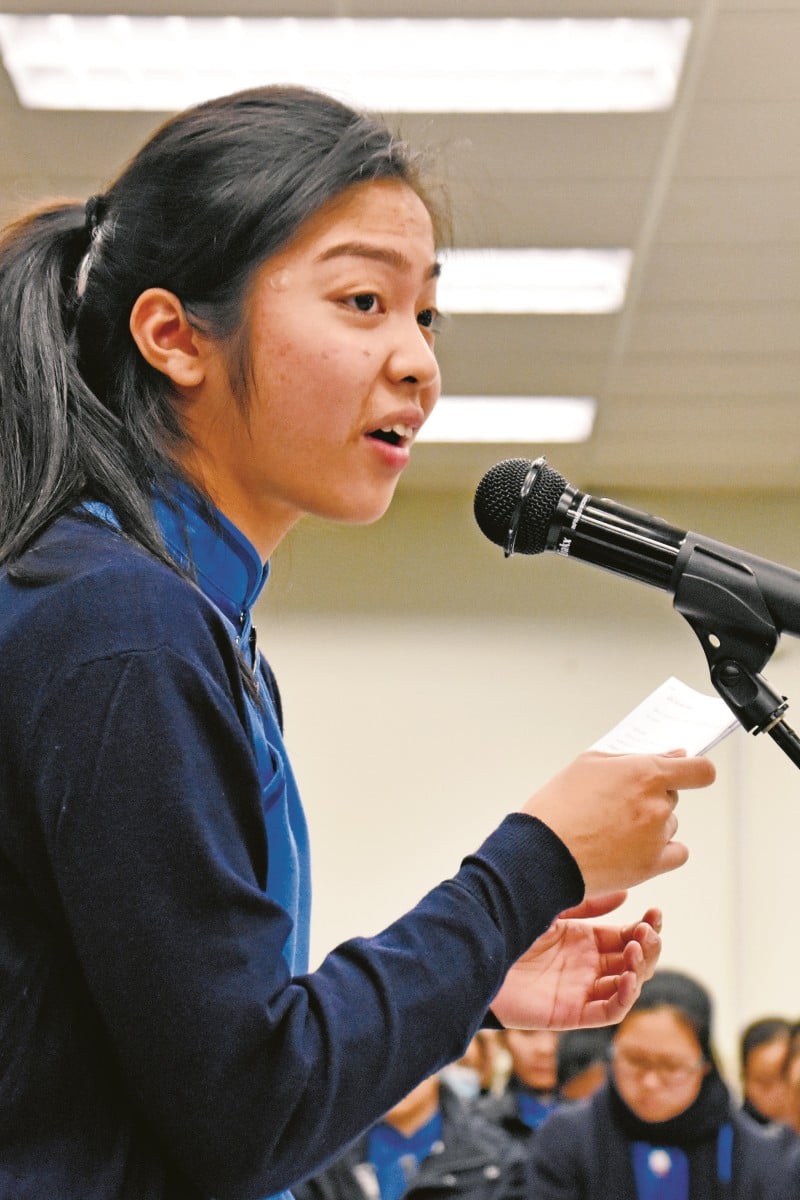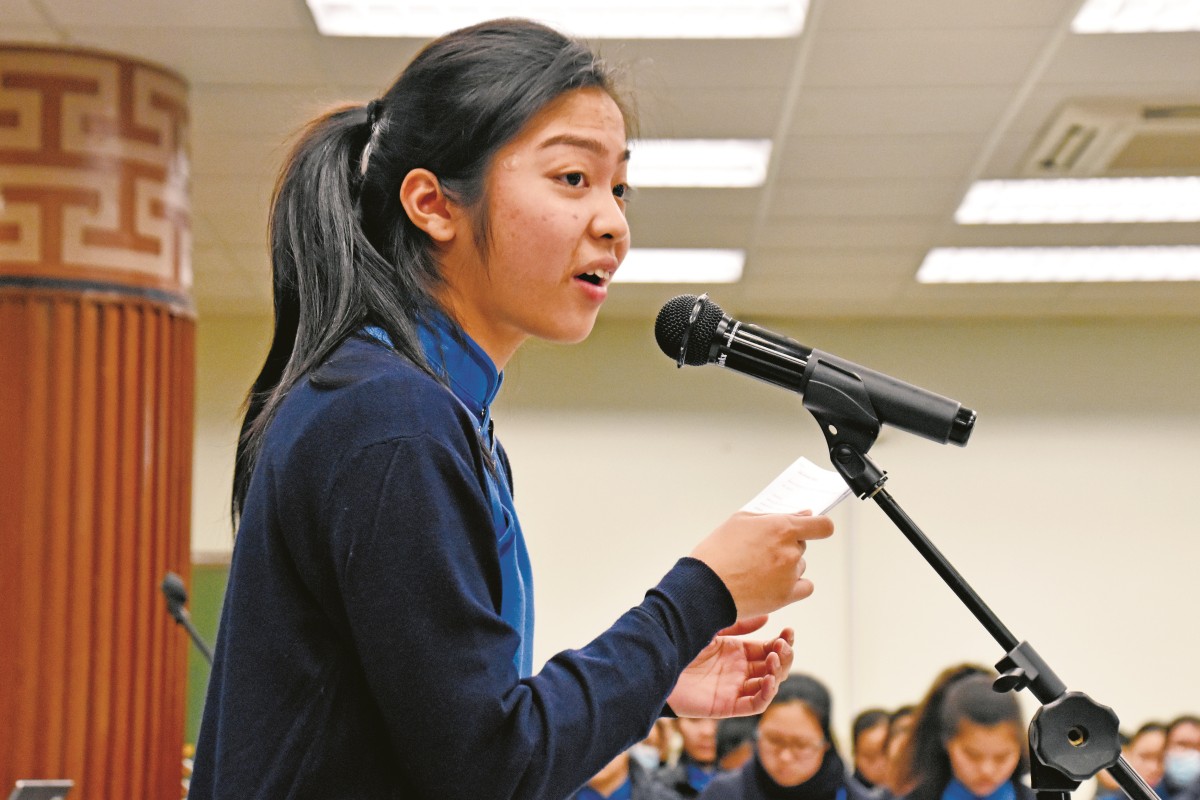
Surprising reasons why your debating judges aren't being wowed by you
You’ve tried your best to make a powerful case, but no-one else seems to agree. What went wrong?
 Danessa Torralba of Ying Wa Girls’ School only uses her notes sparingly.
Danessa Torralba of Ying Wa Girls’ School only uses her notes sparingly.You’ve just finished an important speech during a debate. You’d put in hours of hard work, researched statistics and data, and compiled your notes and script. So you’re fully prepared and expecting your audience to be overwhelmed. But they’re not. What went wrong?
When does research become too much research?
Obviously you want to pack in as much into a debate speech as possible. You want to make your arguments convincing, and the best way to do that is to have a lot of facts.
Statistics, data, evidence, and cases from credible sources are all great content with which to back up your arguments. However, having too much information in a speech might distract the audience from your main arguments, or confuse them. Look at the following example – what do you think of the speaker’s use of data?
“According to the Census and Statistics Department of Hong Kong, the annual GDP growth rate in Hong Kong in 2018 was 3.4214 per cent … the projected figure for 2020 is 3.2015 per cent …”
Here’s what should come to mind when you read this statement.
- What point am I trying to make with these figures?
- Do I really need to be so precise in my figures?
- Are the numbers actually showing a significant trend or change?
Reporting such precise figures isn’t always a good thing, or necessary. If you bombard your audience with numbers like 3.4214 per cent, then you might just lose your listeners.
Your notes are your frenemy
Some speakers feel more secure when they have notes with them when speaking. But you don’t have to constantly refer back to them. Notes should only be used as a quick way to remind yourself of what you’re talking about. Don’t read from them – that is “speaking suicide”, and kills off any possible interaction between the speaker and the audience.
A speaker’s primary job is a bit like a salesperson’s – your job is to sell. In a debate, the thing you’re selling is your case. The way you talk and the bond you build with your audience are the tools with which you can make your sale. Your body language should reflect that, too.
Speak with confidence, and smile. You should already know your script, so make sure your delivery is strong and clear. Pay attention to your pronunciation, your pacing, and your timing. Vary your tone, and use pauses for dramatic effect.
How CAN you use your notes?
Don’t have everything written out. A simple rule of thumb for your notes should be no more than five lines of text per note, with the main points that you want to make. Each one should serve as prompts for what you’re about to talk about next. When you have a moment, pause and glance down at your notes. Then, look back up.
Practise makes perfect
Here are five things that you can do to improve your speaking. Do them often!
- Write out three topics that interest you.
- Select one out of the three that will be of most interest to you AND your audience.
- Find out interesting things about your chosen topic, for example, details and facts that people might not know.
- Make notes, but bear in mind they should be notes and not your entire speech in written form.
- Rehearse a lot. Have fun when you are speaking to your audience!
To find out more about debating, visit the Hong Kong Secondary School Debating Competition website or contact Hong Kong Secondary Schools Debating Competition Coordinator Stan Dyer at hkssdebating@gmail.com.
Debating Bio: Mike Choi is an English teacher and debate coach at Kau Yan College
